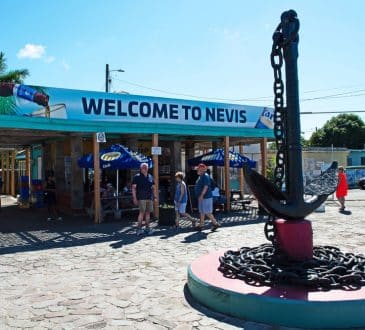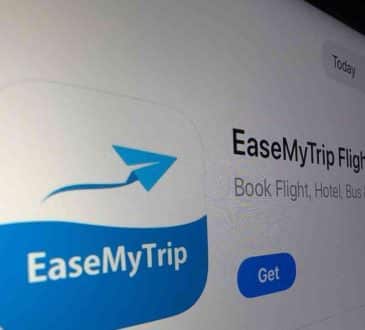A Look Back To Predict What’s Next

My work on building high-performing teams is a daily learning experience, fueled by reading and viewing new material, re-reading books from the past with a fresh perspective, and reflecting on people and places that all too often inexplicably come to the forefront of my mind. Several weeks ago, a reference to John Dewey by Circles CEO Dan Hoffman, triggered an exciting series of events. It inspired me to re-read John Dewey’s book Experience and Education (1938), which then triggered my finishing a book I started a while back titled, Team of Teams (2015) by General Stanley McChrystal. That, in turn, reminded me of my 10th-grade math teacher, Clifford Boatner (1975), and how he prepared us for adaptability through collateral learning. While these may be the unlikeliest of people (and ideas) to be grouped in any coherent way, let me take you on my learning journey.
One of my favorite concepts from Dewey’s work is collateral learning. He described it this way: “Perhaps the greatest of all pedagogical fallacies is the notion that a person learns only the particular thing he is studying at the time. Collateral learning in the way of formation of enduring attitudes, of likes and dislikes, may be and often is much more important than the spelling lesson or lesson in geography or history that is learned. For these attitudes are fundamentally what count in the future.”
For example, when we learn as part of a group, we learn better when we learn together. We build a deeper understanding of the subject matter in one another and give one another the courage to apply that learning. Better still, the collateral learning that takes place doesn’t just involve the subject we are studying together, so much as we are also learning how to collaborate. Collaborative learning is, therefore, the more enduring lesson that we can effectively repeat anytime we’re part of a group or team, regardless of the primary subject matter. The better we become at learning together, the more adaptable we are. This epiphany led me to what I recall reading from Team of Teams about the critical importance of adaptability.
In McChrystal’s recap of Chapter 4, he states: “Since the pursuit of efficiency can limit flexibility and resilience, the Task Force would have to pivot away from seeing efficiency as the managerial holy grail. To confront a constantly shifting threat in a complex setting, we would have to pursue adaptability.”
Earlier in the chapter, he cited Peter Drucker about efficiency and adaptability, stating that teams built for efficiency are capable of “doing things right” as long as the circumstances are predictable. In the less predictable, fast-paced world in which we live today, only adaptable teams will “do the right things.” Amidst head-spinning technological advances, and a life-altering pandemic, the act of prevailing against the unpredictable (confronting what we’ve never seen before), and doing so successfully, is the real test of any great team.
This focus on adaptability led to the “aha moment” I had about my high school math teacher. Clifford Boatner was the only math teacher I ever had who didn’t teach problem-solving by sharing math formulas and asking students to memorize them. Sure, if you remembered the formulas, you knew how to solve the equations. Makes sense, yes? But what happens when you take the SATs, and it includes problems you’ve never seen before? What then? Short of hoping you guess correctly among the multiple choices, you’d be lost. Rather than have us rely on memorization of what we were taught, Mr. Boatner showed us how to think mathematically. That way, if we confronted a question on the SAT we’ve never seen before, we had the tools to figure it out.
Thanks to Dan Hoffman for triggering a journey that took me from 1938 to 2015 to 1975 to the present day. If we want to lead and be part of teams prepared to handle anything life can throw at us, it will involve embracing collateral learning, prizing adaptability over efficiency, and being relentless about preparing our teams for what’s next – without having any idea what that may be.
The questions to you as the CEO are simple: Does your training intentionally include collateral learning opportunities? Are you encouraging collaboration that prizes adaptability? Are you doing everything you can to leverage this period to grow your people by teaching them why versus just showing them how?
Finally, since we began with a Dewey quote, here’s another: “…all principles by themselves are abstract. They become concrete only in the consequences which result from their application.”
This is what’s next.
Commentary by Leo Bottary. Here’s what you’ve missed?
World’s Largest Megacities By Population.
World’s Best Leisure Destinations.
Luxury Superyacht Charter with Aegean Luxury Yachting.
World’s Best Cities For Street Food-Obsessed Travellers.
Bring the best of the CEOWORLD magazine's global journalism to audiences in the United States and around the world. - Add CEOWORLD magazine to your Google News feed.
Follow CEOWORLD magazine headlines on: Google News, LinkedIn, Twitter, and Facebook.
Copyright 2025 The CEOWORLD magazine. All rights reserved. This material (and any extract from it) must not be copied, redistributed or placed on any website, without CEOWORLD magazine' prior written consent. For media queries, please contact: info@ceoworld.biz











